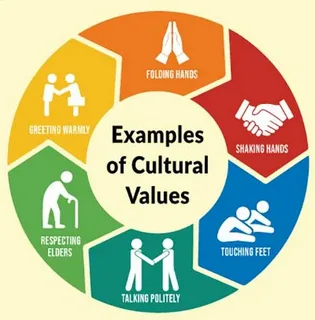-
Новости
- ИССЛЕДОВАТЬ
-
Статьи пользователей
-
Группы
Exploring the Richness of Historical and Cultural Heritage

Our world is a tapestry woven from the threads of diverse historical events and cultural expressions. The beauty of human civilization lies in the vast array of stories, traditions, and achievements that have been passed down through generations. From ancient civilizations to modern-day societies, the historical and cultural milestones shape the world we live in today. In this blog, we explore the importance of preserving and understanding our historical and cultural heritage, and why it’s essential for fostering a connected global community.
What Are Historical and Cultural Heritage?
Historical heritage refers to the tangible and intangible remnants of the past that have shaped a society. This includes ancient buildings, archaeological sites, artifacts, and even written records that reflect the events and people who have influenced history. Historical heritage serves as a valuable source of information about the social, political, economic, and technological progress of past societies.
Cultural heritage, on the other hand, includes the traditions, beliefs, languages, rituals, art, music, and practices that are passed down within communities. These intangible aspects of culture contribute significantly to a sense of identity and belonging. Cultural heritage is a living expression of a society’s history and values, often influencing how people relate to one another and the world around them.
Why Is Historical and Cultural Heritage Important?
-
Preserving Identity and Tradition
One of the primary reasons for protecting historical and cultural heritage is that it helps preserve the unique identity of communities and nations. For example, ancient traditions, local crafts, and oral histories help maintain a connection to the past. They remind us of where we come from and provide a sense of continuity, even in the face of global change. -
Fostering Understanding and Tolerance
In our increasingly globalized world, cultural exchanges are more frequent than ever. By understanding the histories and cultures of different people, we cultivate empathy and tolerance. This knowledge helps break down stereotypes and misconceptions, leading to a more inclusive and harmonious society. The study of historical and cultural heritage provides a platform for dialogue, allowing individuals from diverse backgrounds to find common ground and celebrate their differences. -
Educational Value
Historical and cultural heritage serves as a living classroom. Museums, historical sites, and cultural festivals provide an opportunity for learning in an engaging and interactive manner. Students of all ages can explore the past through firsthand experiences, making history come alive. These educational encounters help instill a sense of curiosity, pride, and appreciation for the richness of human civilization. -
Inspiring Innovation and Creativity
The lessons of history are not only about understanding the past but also about inspiring future generations. The inventions, art, and philosophies of earlier societies often serve as springboards for new ideas and innovations. Ancient Greek philosophy, Renaissance art, or the technological wonders of the Industrial Revolution continue to influence modern-day science, technology, and art. Similarly, indigenous cultures’ sustainable practices and artistic expressions inspire contemporary solutions to modern challenges. -
Economic Benefits
Beyond their cultural and educational importance, historical and cultural sites often have significant economic value. Cultural tourism is a major industry that brings visitors from all over the world to explore landmarks like the pyramids of Egypt, the Great Wall of China, or the temples of Angkor Wat. These sites not only boost local economies but also help fund conservation efforts, ensuring that future generations can enjoy them.
The Challenges in Preserving Historical and Cultural Heritage
Despite the undeniable importance of historical and cultural heritage, preserving it is not without its challenges. Modernization, urbanization, and climate change pose significant threats to many heritage sites. Overcrowding and the destruction of ancient monuments through tourism, war, and natural disasters further complicate conservation efforts.
Moreover, globalization has led to the erosion of certain cultural practices and languages. In some parts of the world, indigenous languages are at risk of disappearing, while traditional art forms are being replaced by mass-produced goods. This loss of cultural diversity undermines the richness of global heritage.
How Can We Contribute to the Preservation of Heritage?
-
Promote Awareness
One of the most important ways to preserve historical and cultural heritage is to raise awareness. Educating people about the significance of heritage sites, cultural practices, and traditions encourages respect for them. Schools, universities, and media outlets play an essential role in spreading this knowledge. -
Support Local and Global Conservation Efforts
Many organizations and governments are dedicated to protecting heritage sites and promoting cultural diversity. Supporting these efforts, whether through volunteering, donations, or responsible tourism, can help ensure that future generations can appreciate and enjoy the richness of our shared history. -
Respect and Engage with Cultural Practices
While engaging with different cultures, it’s essential to do so with respect. Participate in cultural activities in a way that acknowledges their significance, and avoid commodifying or misrepresenting cultural symbols. This helps preserve the integrity of cultural practices while fostering cross-cultural understanding. -
Sustainable Tourism
Tourism is a double-edged sword. While it can provide economic benefits, it also poses risks to heritage sites. To help mitigate this, travelers should be mindful of their impact on the environment and local cultures. Respect for local customs, minimizing waste, and following guidelines for visiting historical sites are all ways to travel sustainably and protect cultural heritage.
Conclusion
The preservation of historical and cultural heritage is a collective responsibility that requires global cooperation, local action, and individual awareness. By understanding and celebrating the past, we not only honor the people who came before us but also ensure a richer, more diverse world for future generations. Whether through the study of ancient artifacts, the celebration of festivals, or the protection of endangered traditions, the importance of historical and cultural heritage cannot be overstated. Let us all contribute to preserving the legacies that shape our identities and enrich our lives.





